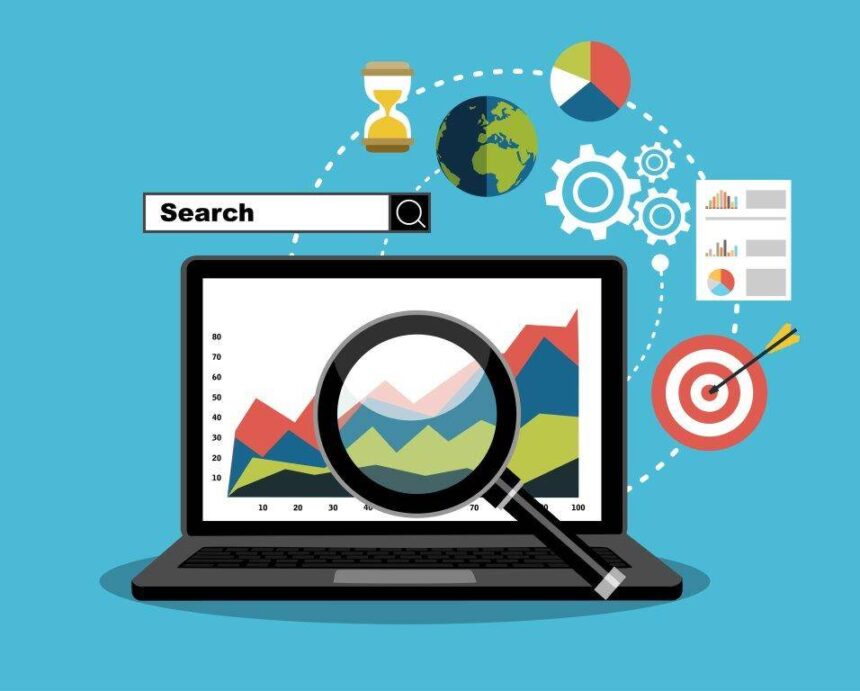Some of the basics of search engine optimization (SEO) are easy to pick up. Conceptually, the strategy makes sense; Google (and other search engines) index pages throughout the web, then rank them based on their measurable authority and their relevance to whatever?s being searched. If you employ tactics that guide your relevance toward the type of queries you want to target, like writing blog posts with carefully chosen headlines, and those that boost your authority, like building offsite links, eventually you?ll see higher rankings.
You can do this on your own, but it?s usually better to work with an SEO agency; agencies tend to have access to more specialist employees and more experience in the game, so they can work more efficiently. But regardless of whether you choose to bring on an agency or do the work yourself, there?s one crucial step that many novice optimizers miss: collecting and analyzing data from the campaign.
Without a solid data analytics strategy, your SEO campaign will fail.
The Role of Data
While the basics of SEO are easy to grasp, there?s an air of mystery to the strategy. Google doesn?t publish the specifics of its ranking algorithm, nor does it give webmasters a surefire blueprint for ranking success. Instead, the company gives subtle clues about the type of quality content it’s looking for, and the rest of us are stuck conducting experiments and learning from each other which ranking factors are most likely to help us succeed.
In other words, you?re flying blind. There?s no template for success, nor is there a standard process to follow to rank higher in search engines. You may think you?re doing the right thing, when in reality, you?re sabotaging your own campaign.
Data analytics are there to help you measure exactly how your campaign is performing. With it, you can easily tell when you haven?t had results for the past few weeks, or past few months, and you can take action to correct the mistakes you make.
On top of that, data can guide which strategies and tactics you use to support your business. If you study the effectiveness of your individual blog posts, for example, you can more easily assess which kinds of topics your audience best prefers. You can write more of those popular topics in the future, and steer clear of the least-popular ones. You can also analyze your competitors? backlink profiles to see which sources they?re using (or not using); from there, you can choose to mimic their strategy to your own advantage, or complement their apparent weaknesses.
Because the information we have on Google?s ranking algorithm is limited, we have to treat SEO as one gigantic experiment, and for any experiment to be successful, we need to gather data objectively. It?s okay to lean on some of the data that other companies have gathered, but your own reports will lead you to much more specific insights.
Types of Data to Examine
Knowing that, which types of data are you supposed to collect? If you?re working with an SEO agency, they?ll be able to work with you to create a custom reporting method (and schedule), and should provide details on your campaign regularly.
If you?re going alone, Google Analytics is going to be your best friend. Google Analytics is completely free and will grant you access to many important metrics for your campaign, including:
- Organic traffic. Organic traffic is a measure of how much traffic you?ve earned through search engines. Ideally, it will increase over time. You can look at it for your site overall, or for specific pages within your site.
- Content popularity. You can also view multiple data points like time spent on page, total views, and traffic patterns to determine the popularity (or lack thereof) of various blog posts, so you can tweak the direction of your content strategy.
- Referral traffic. If you?re building links, referral traffic can also help you understand the impact of the links you?re building.
You?ll also want to pay attention to how you rank for various keywords and keyword phrases, though Google won?t hand this information over to you directly. In addition, you?ll want to keep tabs on all the links you?ve built for your campaign over time (i.e., your backlink profile).
The most important elements of data reporting and analytics in your SEO campaign are consistency and follow-through. It?s not enough to check into these metrics occasionally; you have to look them up at least once a month (if not once a week), then use them to create actionable insights for yourself. If you?re not making tweaks based on the data you?re analyzing, you won?t be able to improve your campaign?s performance over time.

